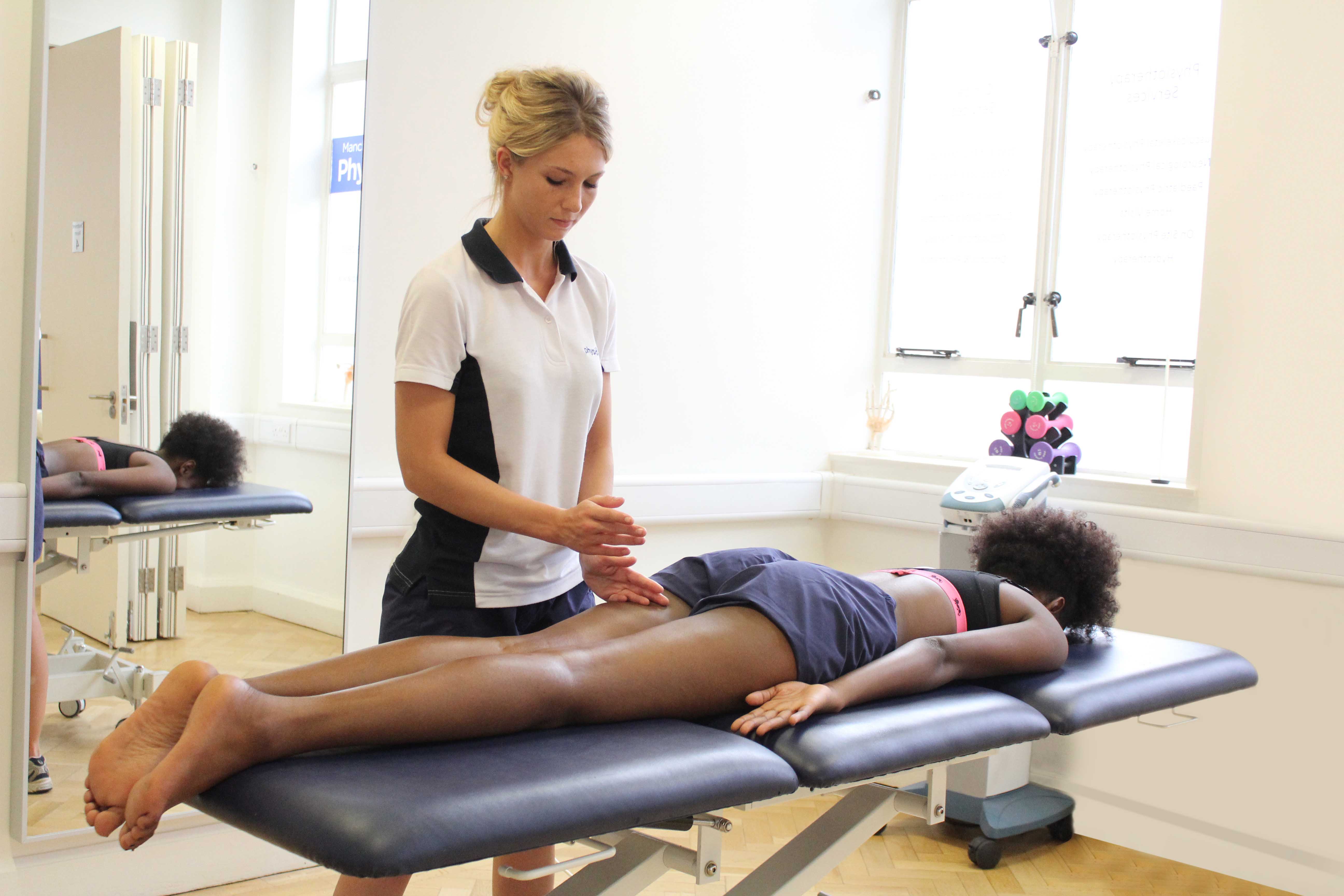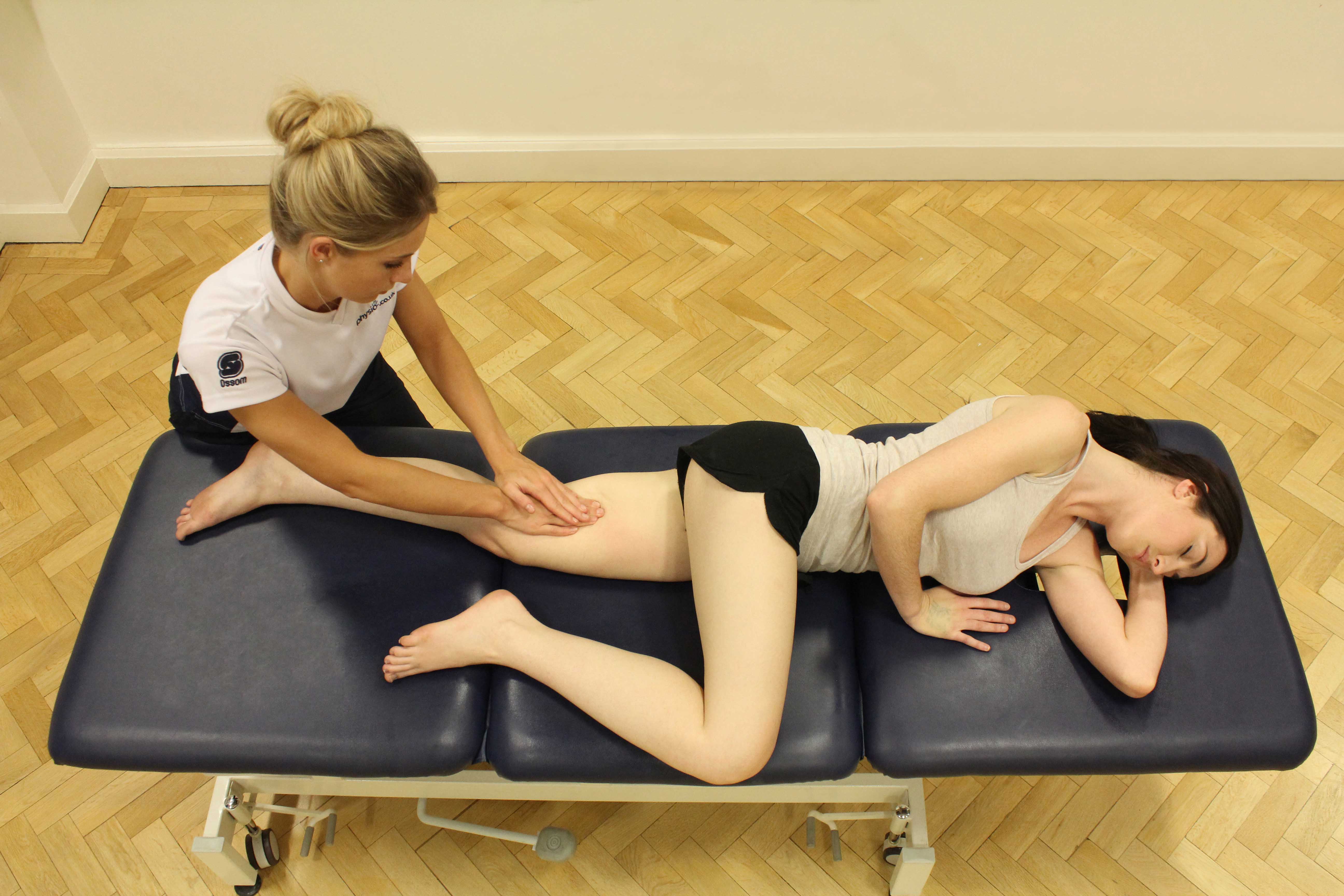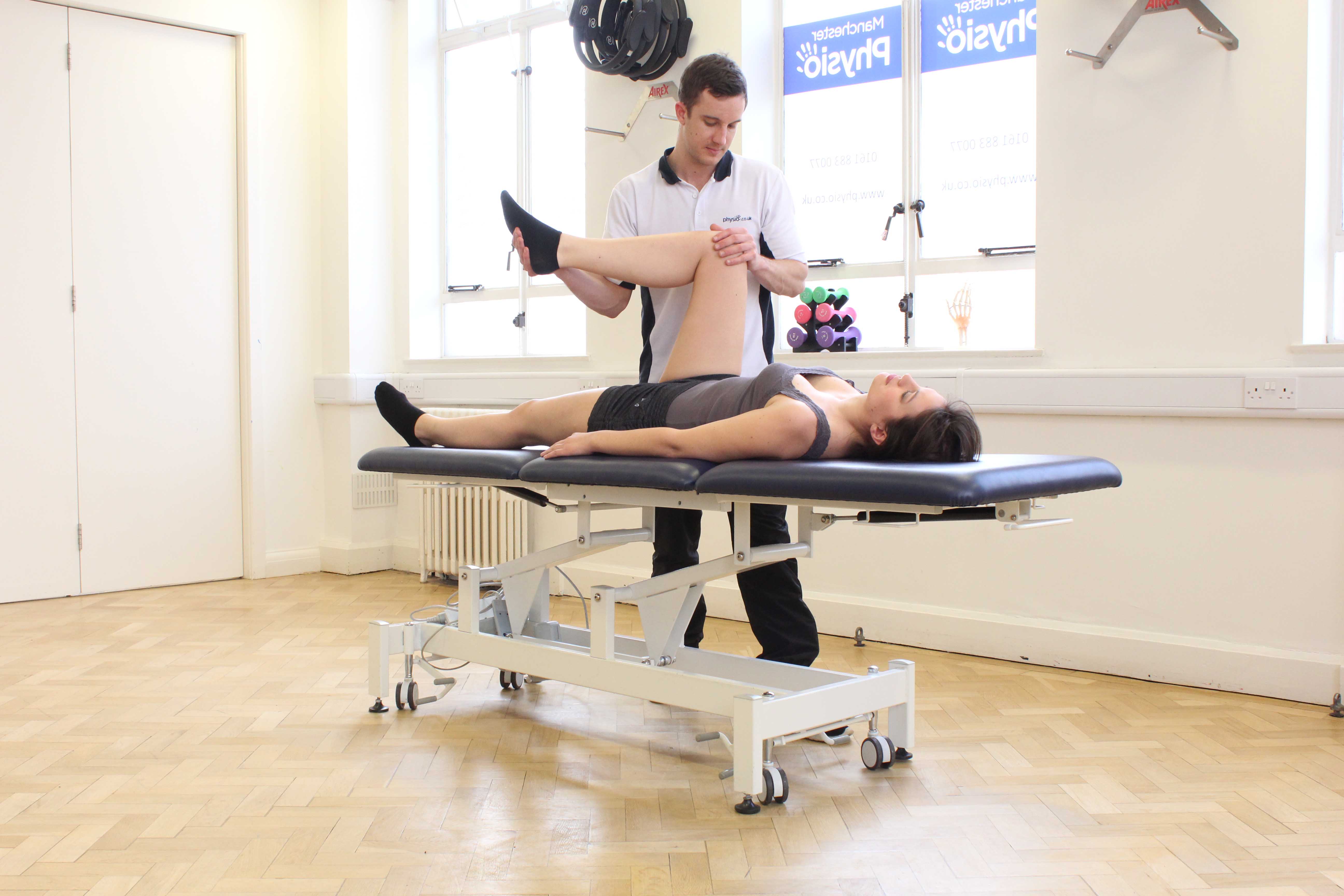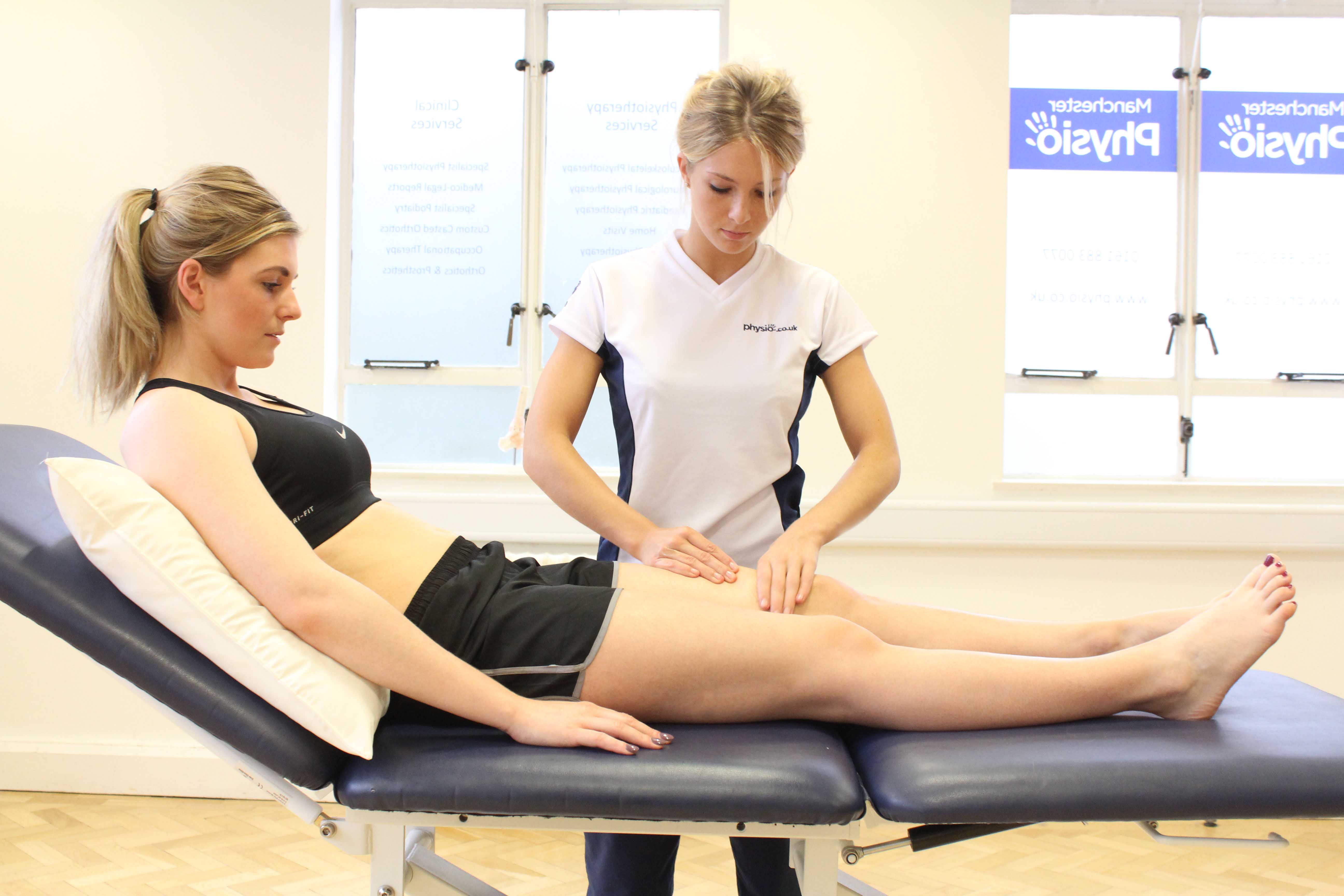What is myositis ossificans?
Myositis ossificans refers to the formation of bone within a muscle. It most commonly occurs in the quadriceps muscle (the group of muscles on the front of the thigh) following a dead leg. It is generally thought that myositis ossificans is caused by returning to normal activity too soon after suffering a severe bruising injury to a muscle. Physiotherapy is important following a diagnosis of myositis ossificans.
 Above: Hacking percussion soft tissue massage of the hamstring muscles by specialist MSK therapist
Above: Hacking percussion soft tissue massage of the hamstring muscles by specialist MSK therapistHow does myositis ossificans happen?
A contusion (or bruise) is caused by a direct blow or impact to a muscle. The muscle is crushed against the underlying bone. Although the exact cause of myositis ossificans is not completely understood, it is believed that it may develop if a contusion is caused to re-bleed during recovery. This can occur if someone returns to activity too soon, or through over-vigorous massage or stretching of the quadriceps muscle.
 Above: Soft tissue massage of the hamstring muscles by a specialist MSK therapist
Above: Soft tissue massage of the hamstring muscles by a specialist MSK therapistWhat are the symptoms of myositis ossificans?
Myositis ossificans is characterised by an unusually slow recovery from a contusion injury. Pain and range of movement often improve in the first few weeks after an injury, however, as bone is gradually formed in the muscle, the pain and muscle stiffness worsen. Night pain and increased pain in the morning may also be present. Other symptoms include:
What should I do if I have myositis ossificans?
The appropriate management of contusions (see dead leg) is the best way of preventing an onset of myositis. However, if you have suffered a recent dead leg or contusion injury and suspect that you have developed myositis ossificans, you should arrange an immediate assessment with a physiotherapist
What shouldn’t I do if I have myositis ossificans?
If you have or suspect you have myositis ossificans, you should not, under any circumstances, try to ‘stretch out’ the injury. Overstretching can aggravate the injury, cause more pain, more bone formation and prolong recovery. Deep massage over the injury should be avoided for the same reason.
 Above: Assessment of the upper leg by an experienced MSK physiotherapist
Above: Assessment of the upper leg by an experienced MSK physiotherapistPhysiotherapy treatment for myositis ossificans.
Physiotherapy assessment and advice are very important in the treatment of myositis ossificans. Initially, your physiotherapist can diagnose your injury. You may be referred for an X- ray to confirm this diagnosis. Unfortunately, with myositis ossificans there is a very limited amount of treatment available. The techniques available can help reduce your pain and allow you to rest. Activity and stretching only worsen the problem. You will be monitored as throughout your recovery (as the bone is reabsorbed).
Once it is possible your physiotherapist will devise a programme of stretching and strengthening exercises to facilitate the return of your muscle length, muscle strength and your return to participation in sports. It may be advised that you wear padding to protect you when you return to sport.
Other treatments include:
Could there be any long-term effects from myositis ossificans?
Myositis ossificans causes pain over a period of months and requires lengthy periods of rest. Unfortunately, little can be done to accelerate the process of the bone being reabsorbed. Although progress is slow it is, however, fair to expect to make a full recovery.
 Above: Rolling soft tissue massage of the quadriceps muscles by a specialist MSK therapist
Above: Rolling soft tissue massage of the quadriceps muscles by a specialist MSK therapistTo arrange an assessment with a specialist physiotherapist call Physio.co.uk on 0330 088 7800 or book online.

 0330 088 7800
0330 088 7800


































